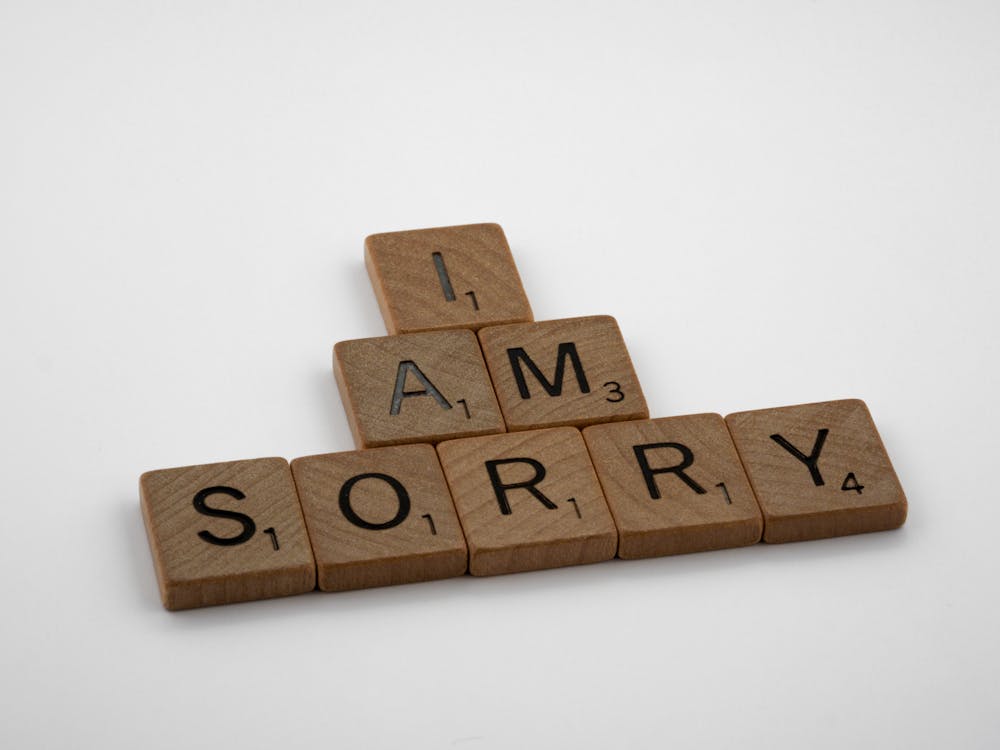All That You Need To Know About SORRY — The Most Misunderstood Term

Everyone has uttered the word ‘sorry’ umpteen times in their lives. This five-letter word has an immense role where emotions play louder than words. Probably, no word in the world has as much power and strength as the term sorry possesses.
Even after committing the gravest of mistakes, intentionally or unintentionally, saying sorry to the aggrieved person can pacify them instantly—such is the magic and charm of this word.
But these days, sorry seems to be an easy way out!
Slap a person, say sorry… Indulge in an extramarital relationship, and when your partner comes to know about it, just apologize.
Similarly, after failing your school and college examinations—say sorry to your parents and teachers.
Do your office task negligibly and say sorry to your boss or manager. Too many examples are there to say how the word ‘sorry’ continues to be misinterpreted for our own benefit.
The word sorry is also used to overlook the problems of others.
When poor people ask for money, we go ahead without paying heed to their concern—just say sorry.
Thus, it is now repeatedly used in completely different contexts.
In reality, the essence of Sorry is humongous.
Say sorry only when you really mean it. Say it from the bottom of your heart.
There must be a clear-cut demarcation between when you can go without using the word sorry and when you can’t.
Is The Word Sorry Responsible for Breaking Relationship?
In a relationship, sorry is used too frequently to win the trust of a partner or spouse. However, sorry doesn’t always fetch the right result.
Often in an arranged marriage, the spouse takes the word sorry for granted. For example, a wife often has to say sorry to her husband when she doesn’t prepare a dish according to her husband’s wish.
Or suppose a wife comes late from the office-she will again apologize to her husband.
While a woman will happily do so in order to prolong her marital relationship, saying sorry does shake her conscience when her mistake is negligible.

Deep inside her heart, she equates saying sorry to actually letting herself down. She doesn’t feel good about it.
She has to say sorry out of social compulsion or to keep the relationship strong. But sorry can never save a relationship when the very thread of trust between people gets broken.
A survey report of 2010 has revealed that mostly, women say sorry… than men.
Though men prefer to say Sorry only when it is indispensable, women say sorry or even ask for an apology for their tiniest mistakes.
There can be various reasons behind it; patriarchy, their upbringing, and of course, an individual’s own thought process and psychology.
But anything in excess is bad.
The word sorry should be used sensibly, and this rule applies to both sexes. Using the word frequently fades away the magic for which ‘sorry’ is universally known for.
Even sorry breaks the relationship!
Sorry is not a word to keep yourself aloof from unwarranted relationship conflicts.
You can’t let others smile and get their ego boosted while you constantly put yourself down by seeking an apology to every person who you don’t agree with.
Choose the other way round; use sorry as the last resort—when your guilt is too big and irreplaceable.
Top 5 Words That You Can Use Instead of Saying Sorry (Box Item)
Thank You: If someone points out your mistake in the office or at home, instead of saying sorry—say thank you. It’s encouraging and keeps you and others in a positive mood.
Okay: Suppose your friends are counting your bad habits such as you always come late or don’t join them at parties, instead of arguing say okay!
Peace out: You may face arguments in your day-to-day life, but you can’t fight with every person. Hence instead of saying sorry, say Peace Out and move on.
Accept Your Mistake: People tend to pinpoint others’ mistakes while overlooking their own. In times of serious conflict with your friends or family members, or even unknown acquaintances, just accept your mistake and let the matter come to rest.
Silence: You can actually stay silent and control a conflict. Let your body language explain that you have realized your fault and won’t do it again.
Why Some People Refrain From Saying Sorry
Saying sorry is the toughest thing to do. We say sorry to alleviate the feeling of guilt inside us or to avoid confrontation.
Interestingly, not all people are too quick to apologize.
Some people find it relatively simpler to say sorry and move on in life, while others may not say so. For these people, ego is more important than anything else.
These people often go on blah, blah, blah, even after knowing they are on the wrong side.
Psychologists have recently revealed that people who try to pretend themselves innocent even after knowing they are wrong are not quick enough to apologise.
Passing the buck is the easiest trick to absolve oneself from guilt, but your inner-self will never accept it.
In the entire universe, this five-letter word has enormous value and significance. It is directly related to our self-esteem.
We speak so many words daily, but when we utter the word sorry it makes us emotional—especially when the magnitude of our mistake is quite small.
The entire world knows that only a strong person can say sorry. Saying sorry won’t make you any less strong than others.
Understanding a Non-Apologist’s Psychology
Non-apologists try to hide their emotions. They are usually impulsive, irritable, and hyper-emotional. They fear that if they say sorry—they will become powerless.
Non-apologists are at fault. Their action can’t be separated from their characters. They have a self-centered attitude.
Asking for an apology means the world will perceive them as repeat offenders.

Non-apologists feel that sorry will confirm their mistakes.
Fearing further accusations, they don’t apologize. Contrarily, people seeking regular apologies feel it is the only way to correct their mistakes, without entering into further conflict. It helps them move forward in life.
For example, while arguing with one’s spouse, a person may feel that sorry will save the relationship but some people refrain from saying so as it may lead to admitting the guilt that they haven’t committed.
Interestingly, not all people are fully apologists or non-apologist. It is our psychology and individual persona that determines our behavior depending on a particular situation. Certain elements of apologist and non-apologist are inside every one of us, we have to behave responsibly and in a balanced manner.
Is It Right to Ask For An Apology Even If You Are Not at Fault?
Sometimes, people say sorry out of fear of being judged. To some extent they are right. Obviously, if saying a word saves a relationship or makes an aggrieved party smile, then certainly one mustn’t refrain from uttering it. But it must come straight from your heart.
Apologizing to someone with no remorse inside doesn’t make any sense. An apology can’t convert your wrongdoing into good, but it can surely mitigate the pains and anxiety of the aggrieved party.
(END/ Atish Home Chowdhury)





